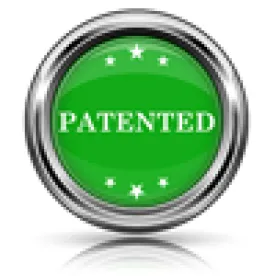Takeaway: The parties are not permitted to request panel expansion.
In its Decision, the Board denied Petitioner’s request for relief in the form of a second rehearing of the decision not to institute inter partesreview. In particular, the Board concluded that Petitioner’s Notice had failed to show sufficient basis for a second request for rehearing under 37 C.F.R. § 42.21(c)(1).
A panel of the Board had previously denied Petitioner’s request to institute inter partes review of claims from the ’798 patent. That same panel also denied a subsequent request by Petitioner for rehearing of the Board’s original decision to not institute review. Petitioner then filed a Notice of Basis for Request for Relief requesting “a second rehearing by an expanded panel of the Rehearing Decision and the Decision not to institute inter partesreview.” In response, the Chief Judge at the Board directed that an expanded panel of the Board consider the positions set forth by Petitioner in the Notice. Only the Chief Judge is authorized, on behalf of the Director, to expand a panel on a “suggestion” from a judge or panel. The panel itself is not authorized to select additional Board members to decide the matter.
It was Petitioner’s position that the Decision and the Rehearing Decision were in conflict both with well-established law and with the plain meaning of § 315(b). According to Petitioner, for example, it was improper for the Board to have concluded that an entity other than the patent owner could trigger the one-year period for filing a petition. Thus, it was Petitioner’s contention that rehearing by an expanded panel of the Board was “necessary to reconcile the panel’s decisions with the law and prior actions by the Board, and to bring certainty to the application of § 315(b).”
The Board did not agree with this argument. In this regard, the Board confirmed that the panel had been correct in concluding that the Petition was not timely filed under § 315(b); and that the panel’s decision was not inconsistent with prior decisions. Moreover, the Board found that Petitioner’s argument that 35 U.S.C. § 315(b) “can only be triggered by service of a complaint from a party with standing to assert the patent” would not be considered because it was untimely.
Apple Inc. v. Rensselaer Polytechnic Institute and Dynamic Advances, LLC, IPR2014-00319
Paper 20: Decision on Petitioner’s Notice of Basis for Request for Relief in the Form of a Rehearing by an Enlarged Panel
Dated: December 12, 2014
Patent: 7,177,798 B2
Before: Josiah C. Cocks, Justin T. Arbes, Bryan F. Moore, Miriam L. Quinn, and Kevin W. Cherry
Written by: Per curiam



 />i
/>i
